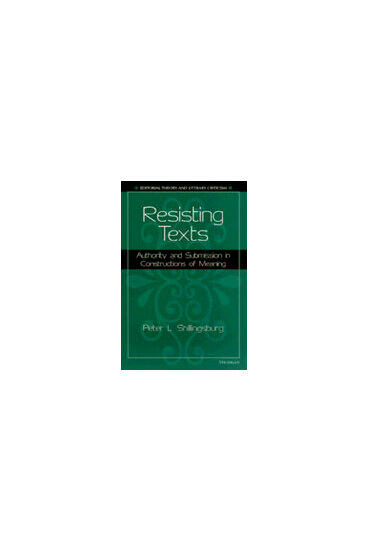Resisting Texts
Authority and Submission in Constructions of Meaning
Reveals how language and texts are used to control both the present and the past
Description
"It is with no desire or hope to promote a correct or superior form of textuality, with no desire to correct a so-called interpretive or editorial textual abuse, nor any attempt to prevent anyone from doing anything imaginable with texts or books that I have undertaken this book. . . ." So writes Peter Shillingsburg in his introduction to this series of meditations on the possibilities of deriving "meaning" from the texts we read.
Shillingsburg argues that as humans we are and always will be interested in the past, in what was meant, in what was revealed inadvertently by a text--and that is all to the good. But we learn more and can compare notes better when we understand the principles that govern the ways we read. Resisting Texts approaches crucial questions about the practice of textual editing and literary criticism by posing questions in the form "If we take such and such to be the goal of our reading, then what will follow from that assumption?"
With humor and a lively imagination, Shillingsburg takes the reader on a fresh theoretical investigation of communication, understanding and misunderstanding, and textual satisfactions, drawing examples from Thackeray, Wordsworth, Melville, and others.
Resisting Texts will appeal to all who enjoy the varieties of critical approaches to the written word.
Peter L. Shillingsburg is Professor of English, University of North Texas.

